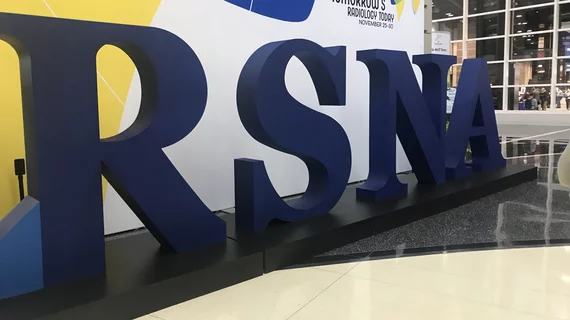RSNA updates rules and regulations for 2021 meeting, including a new live scanning policy
The Radiological Society of North America recently announced new rules and regulations for its 2021 annual conference as it prepares to return in person to Chicago this winter.
A few weeks ago, RSNA confirmed its 107th meeting would return to McCormick Place after last year’s gathering was forced entirely online due to COVID-19. It was the first in-person cancellation since 1945.
This year’s conference comes with a few changes, including a show that will run four days from Sunday, Nov. 28, to Thursday, Dec. 2, according to an update sent to exhibitors on Monday. In 2019, the meeting spanned five days, concluding on Friday, Dec. 6.
RSNA’s board also approved a revised live scanning policy for this year’s assembly. Live scanning is no longer restricted to ultrasound modalities, according to the June 1 update. Qualified healthcare professionals may scan live human models but are restricted to the head, neck, upper abdomen and extremities.
Organizations must pre-scan all models with a physician present and use of contrast material is “strictly prohibited,” among a number of other stipulations outlined by RSNA. Companies wishing to complete live scanning during the show must return a completed official form by October 22.
The world’s leading medical imaging conference said the health and safety of its attendees, exhibitors and staff are its primary consideration.
Those who cannot make the face-to-face gathering can access 100% of eligible meeting content virtually, the Oak Brook, Illinois-based society said in its May 17 announcement.
Registration is slated to open on July 21 and will be free to RSNA members through Oct. 1.
You can read all the updated rules and regulations here.

